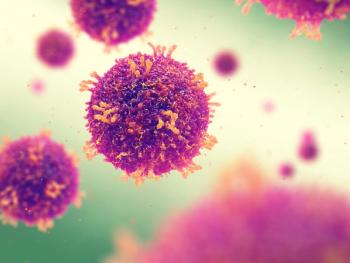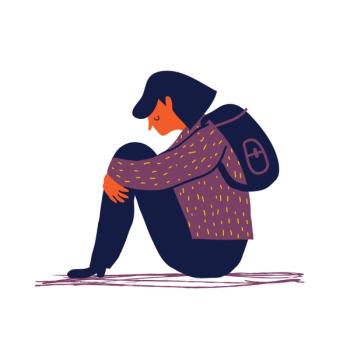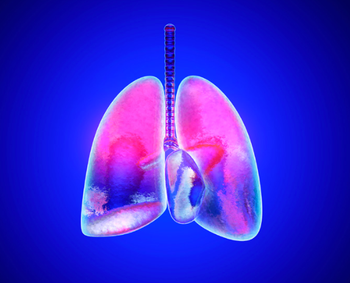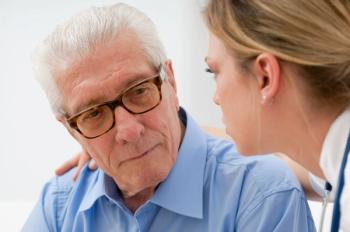
After being diagnosed with cancer, patients should see their dentist as soon as possible, explained Dr. Susan Calderbank.

After being diagnosed with cancer, patients should see their dentist as soon as possible, explained Dr. Susan Calderbank.

Side effects from early-onset menopause from medical treatments may be mitigated with hormone replacement therapy.

Cannabis is becoming more widely used than ever in patients with cancer, though it is important to find reliable information, says an expert from the American Cannabis Nurses Association.

Chemotherapy-related fatigue is a real and often debilitating side effect from cancer treatment.

Children younger than five years old may have an increased risk for hearing loss from cisplatin-based therapies compared with older children, highlighting the potential need for more consistent monitoring for hearing loss in children with cancer.

A cancer survivor shares six helpful tips for getting through the difficulties of cancer treatment.

A woman with breast cancer writes about how patient advocates are pushing for better research into optimal treatment in metastatic breast cancer.

Aprepitant, palonosetron and dexamethasone curbed chemotherapy-induced nausea and vomiting in certain women with gastrointestinal cancers who were receiving FOLFIRI or FOLFOX regimens.

A cancer survivor describes the agony of experiencing side effects that never go away and how she lives with them.

Twelve weeks of acupuncture treatment in certain patients with early-stage breast cancer resulted in a long-term reduction of pain levels.

The potential for a measles and mumps outbreak in the United States may be life threatening for patients with cancer who are immunocompromised.

“More and more (patients and physicians) need to work together in partnership throughout the cancer journey in order to optimize and make the journey the best possible that we can for every single patient,” says an expert from the Roswell Park Comprehensive Cancer Center.

Children with cancer who carry the specific genetic variant may be at a three times increased risk of developing cisplatin-induced hearing loss compared to those who do not.

Experts from the St. Jude’s Children’s Research Hospital advise young-adult childhood cancer survivors to increase their physical activity levels, eat well and stay socially active to reduce their risk of becoming frail and prevent cognitive decline.

Experts urge parents to continue to have conversations with their children about the financial hardships that may occur because of a pediatric cancer diagnosis.

Fewer opioids have been prescribed, but there have been more emergency room visits for pain in patients with cancer who have poor prognoses.

An expert discusses the most common reasons his patients ask him about medical marijuana.

The kinase inhibitor Rezurock was well tolerated in patients with chronic graft-versus-host disease who received up to five lines of prior systemic therapy.

Yoga and cognitive behavioral therapy should be recommended for cancer survivors who are struggling with sleep.

Patients with cancer who are treated with checkpoint inhibitors or immunotherapy, along with other treatments, run the risk of developing ILD as a side effect.

Patients taking checkpoint inhibitors or immunotherapy in combination with other treatments need to be aware of this potential side effect and the associated symptoms.

Experts urge patients to stop playing the wait-and-see game: There’s no ‘playbook’ for immunotherapy-related toxicities, and side effects can be managed if caught early.

The Food and Drug Administration’s priority review will focus on the combination of plinabulin plus granulocyte colony-stimulating factor for the prevention of chemotherapy-induced neutropenia.

Patients with cancer who scored highly on depression and anxiety tests were more likely to suffer from symptoms of chemotherapy-induced nausea, according to results of a recent study.

There is some low-level evidence that suggests medical marijuana or cannabinoids may reduce chemotherapy-related side effects in patients with cancer, according to data presented at a recent medical conference. However, experts note more research is needed to build on those findings.

On social media, CURE® recently asked its readers to share what must-haves they bring with them on days they receive treatment for cancer.

Several factors including female sex, lower socioeconomic status and high intensity surgery were associated with a higher risk of moderate-to-severe symptoms in older adults with cancer following surgery.

A patient discusses her experiences with long-term side effects from cancer treatment and details her frustration with the lack of focus on chemotherapy-induced peripheral neuropathy in patients with advanced cancer.

No matter how far you think you’ve gotten away from them, cancer’s side effects are always in your rear-view mirror, writes this caregiver.

While it may not be the first thing patients think of when diagnosed with cancer, appropriate clothing centered around treatment can help ease their overall experience, according to an expert.